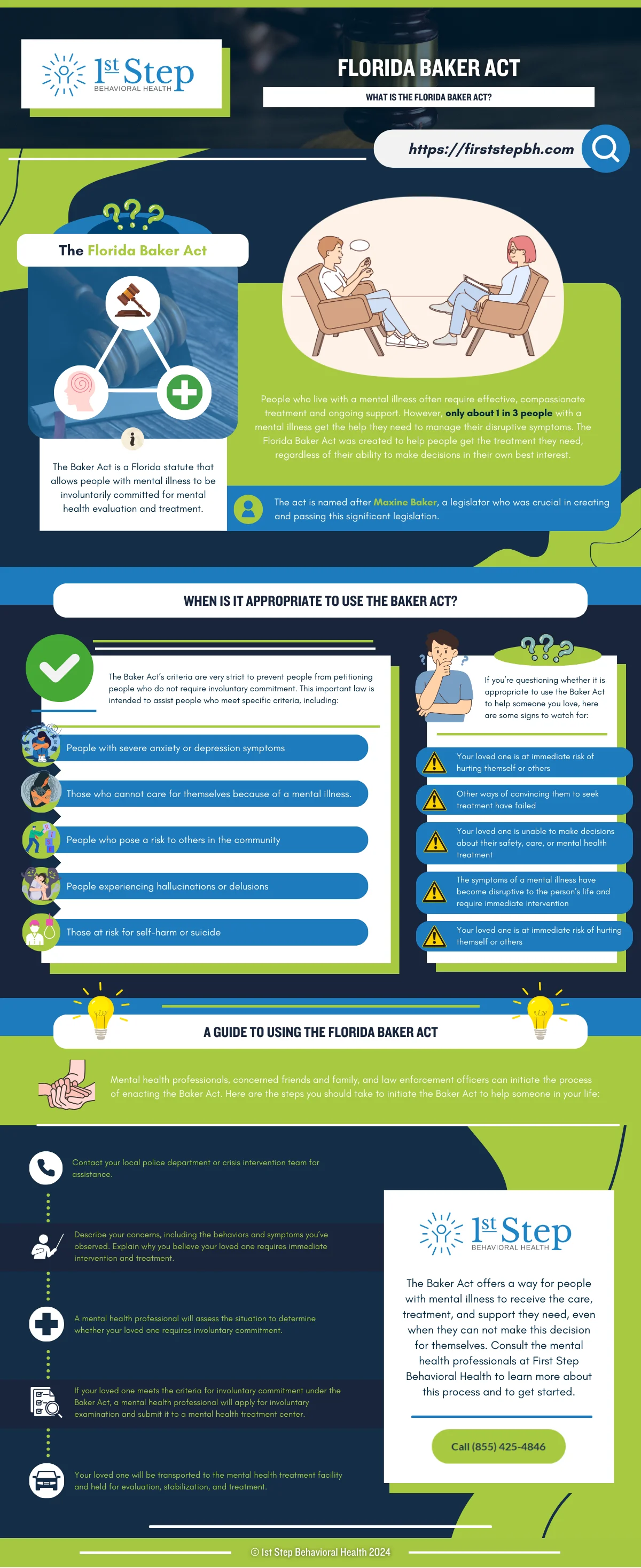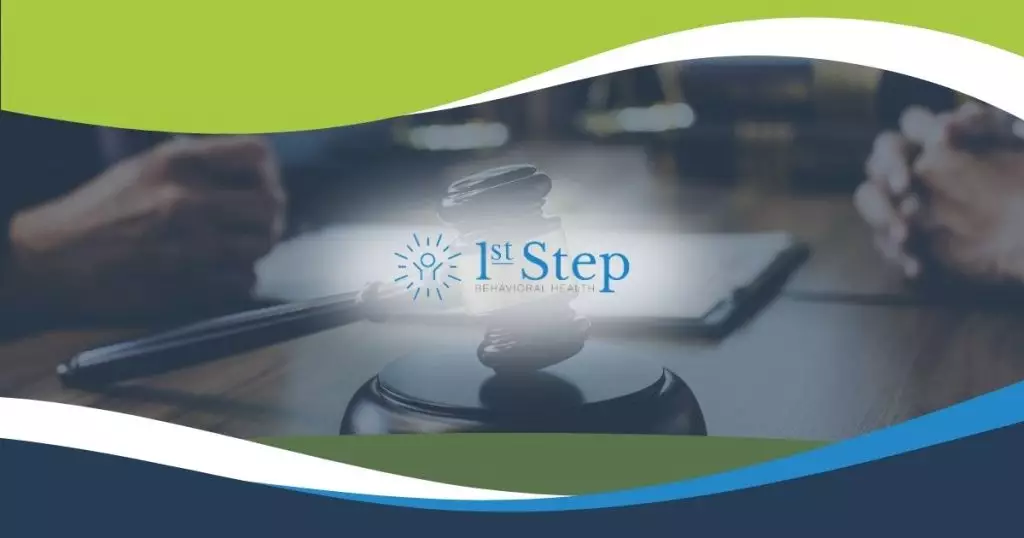
Mental health conditions can significantly and negatively impact people’s lives and make it challenging to live a healthy, fulfilling lifestyle. Without getting treatment and support, people with mental illness can face severe, sometimes life-altering consequences.
Many people living with a mental illness do not get the treatment they need to manage its symptoms. There are often barriers preventing people from seeking care: lack of access to treatment, not knowing where to find treatment, denial of their need for mental health care, and many other factors.
In some cases, it may be beneficial for a person with a mental health condition to be involuntarily committed to treatment. The Florida Baker Act allows people to petition for a loved one to receive involuntary treatment when they can no longer make sound decisions in their own best interest.
This article will outline the Florida Baker Act, how it works, and how to use it if someone in your life requires mental health treatment. Contact the specialists at First Step Behavioral Health now to learn more about the Baker Act or to explore our high-quality treatment programs.
The Florida Baker Act: Understanding the Basics
The Baker Act is a Florida statute that allows people with mental illness to be involuntarily committed for mental health evaluation and treatment. The act is named after Maxine Baker, a legislator who was crucial in creating and passing this significant legislation.
People who live with a mental illness often require effective, compassionate treatment and ongoing support. However, only about 1 in 3 people with a mental illness get the help they need to manage their disruptive symptoms. The Florida Baker Act was created to help people get the treatment they need, regardless of their ability to make decisions in their own best interest.
People may enact the Baker Act to help a loved one with a mental illness who is unable to access the treatment they need.
When is it Appropriate to Use the Baker Act?
Determining when it is appropriate to use the Baker Act can be challenging. Taking this step can feel confusing or overwhelming–but it can be life-changing.
The Baker Act is a critical tool designed to help individuals living with unmanaged symptoms of mental illness. In many cases, the symptoms of a mental health condition can be incredibly disruptive or can prevent people from recognizing that they need help. In those cases, loved ones can recognize the need for treatment and take steps to get them the support they need by enacting the Florida Baker Act.
If you’re questioning whether it is appropriate to use the Baker Act to help someone you love, here are some signs to watch for:
- Your loved one is at immediate risk of hurting themself or others
- Other ways of convincing them to seek treatment have failed
- Your loved one is unable to make decisions about their safety, care, or mental health treatment
- The symptoms of a mental illness have become disruptive to the person’s life and require immediate intervention
- Your loved one is in crisis and requires immediate treatment
The Baker Act’s criteria are very strict to prevent people from petitioning people who do not require involuntary commitment. This important law is intended to assist people who meet specific criteria, including:
- People with severe anxiety or depression symptoms
- Those who cannot care for themselves because of a mental illness
- People who pose a risk to others in the community
- People experiencing hallucinations or delusions
- Those at risk for self-harm or suicide
Contact the specialists at First Step Behavioral Health to learn more about the criteria for enacting the Baker Act. Our mental health practitioners can help you determine if it is appropriate in your case and guide you through the petition process.
A Guide to Using the Florida Baker Act
Mental health professionals, concerned friends and family, and law enforcement officers can initiate the process of enacting the Baker Act. Here are the steps you should take to initiate the Baker Act to help someone in your life:
- Contact your local police department or crisis intervention team for assistance.
- Describe your concerns, including the behaviors and symptoms you’ve observed. Explain why you believe your loved one requires immediate intervention and treatment.
- A mental health professional will assess the situation to determine whether your loved one requires involuntary commitment.
- If your loved one meets the criteria for involuntary commitment under the Baker Act, a mental health professional will apply for involuntary examination and submit it to a mental health treatment center.
- Your loved one will be transported to the mental health treatment facility and held for evaluation, stabilization, and treatment.
The Baker Act offers a way for people with mental illness to receive the care, treatment, and support they need, even when they can not make this decision for themselves. Consult the mental health professionals at First Step Behavioral Health to learn more about this process and to get started.

